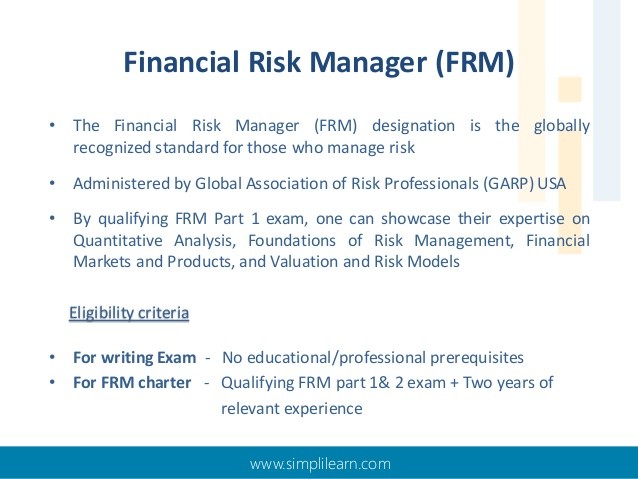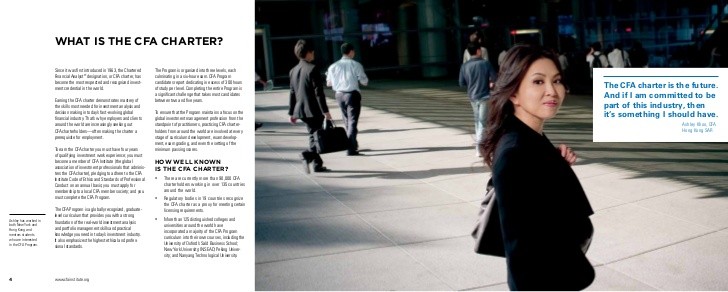An Introduction To The CFA Designation
Post on: 16 Март, 2015 No Comment

FAQs
How do I join CFA Society Sweden?
Please refer to our Membership Page for information about membership requirements and dues. You will also find everything you need to complete an application to CFA Society Sweden.
Must I join CFA Society Sweden to start the CFA Program?
No. CFA Society Sweden regular membership requires that you have passed the CFA Level 1 exam and have four years’ work experience in the industry. However, you must apply for membership of the CFA Society Sweden and CFA Institute before you can become a CFA charterholder.
Most CFA candidates want to join the organization after passing Level 1 to benefit from the educational programs, industry knowledge, and networking opportunities that we provide.
Does CFA Society Sweden charge for events?
Corporate presentations and many topical programs are presented at no cost to members. A fee may be charged for educational programs to cover instructors’ fees as well as facility and administrative costs. Charges vary and are listed in our events calendar.
What are the benefits of earning the Chartered Financial Analyst ( CFA ® ) designation?
Becoming a CFA charterholder demonstrates that you have achieved a high level of knowledge, professionalism, and excellence in the investment business. For more information, check out the CFA section of the CFA Institute website.
When must the required four years of qualifying work experience be completed in order to become a CFA charterholder?
According to CFA Institute the four years of qualifying work experience in a financial field can be completed before the first level exam is written, during the time a candidate is preparing for CFA exam levels I, II, and III, or after the level III exam has been completed. For detailed information on which jobs qualify, visit the CFA Institute website.
I am interested in pursing the CFA charter, but I do not have a degree in business and have not worked within the financial or investment environment. Do I still have a chance of successfully completing the course?
The Chartered Financial Analyst (CFA) program is by no means an introduction to the world of investment. CFA Institute describes the CFA program as being supplementary to any finance-related education and investment experience already completed by an investment professional. This means that those who have mastered and gone beyond the basics in terms of financial education will have a higher chance of completion, as the program is formulated to be an advanced-level series of exams. The degree of difficulty of the CFA exams is demonstrated by the low pass rate of 34% for the level I exam in June 2005.
However, even if you do not have any experience in the world of finance, and have not obtained a degree in finance, you do still have a chance of completing the course. Your path will be more challenging, as you not only have to master the CFA curriculum, but the basics of the curriculum. According to CFA Institute, CFA candidates average 250 hours of preparation time prior to each exam. For people without a degree or experience in a finance-related field, preparation time can be expected to be higher.
One aspect of the CFA program that works in favor of individuals without any financial experience or knowledge is that it also intends to broaden the knowledge base of investment professionals, who tend to focus on particular areas of finance. As such, they do have preliminary readings where a candidate can review fundamentals prior to delving into the actual CFA program material.
A multitude of study resources is available, from CFA seminars to textbooks, study guides to quizzer software. In some regions, there are also pre-CFA level I classes which individuals can take to brush up on financial knowledge prior to enrolling in the program. If certain concepts in these refresher areas are too difficult to master in the time given, you can always take classes which focus on those topics through a university or college.
If I do not have a U.S. Bachelor’s Degree or equivalent, can I still qualify for registration in the CFA program?
CFA Institute indicates that a minimum of 4 years of qualifying work experience may allow an applicant without a Bachelor’s degree to qualify. Details such as dates and places employed, as well as a description of job duties, must be given in full on the Registration & Enrollment Form.
A combination of university and/or college education and qualified work experience may also allow you to register in the CFA program without a Bachelor’s degree. Detailed information on work experience and education completed must be included on the Registration & Enrollment Form.
Remember: If you do not have a Bachelor’s degree before the date of your first exam, or do not have a total of 4 years of university education and/or qualified work experience, CFA Institute will cancel your registration. And, if you have already written the exam, they will void your exam results. Furthermore, they do NOT offer refunds to individuals who have had their registration cancelled.
For detailed information on Registration & Enrollment in the CFA Program, visit the CFA Institute website here .
What type of work experience can count towards the four years experience required in order to obtain the CFA charter?
CFA Institute provides a list of job titles that qualify for the work experience an individual must gain to be awarded with the CFA charter; click here for the list. However, be warned that a job title alone is not sufficient.
You must have spent at least 40% of your time utilizing financial data or supervising or teaching those who utilize financial data—for financial analysis, investment management, or other typical financial decision-making processes.
Additionally, your employment with the stated job title must have been full-time; accrued employment from summer, internship and part-time positions do not qualify.
If I already hold a professional certification am I eligible for any exemptions from CFA requirements?
No. To obtain a CFA designation, you must complete all levels of the CFA program regardless of whether you hold a professional certification or not. Additionally, you must complete at least four years of qualified work experience before being awarded the CFA charter.
For further information on CFA program requirements, click here .
I did not receive my Bachelor’s degree in the United States. How can I determine whether my Bachelor’s degree is comparable to a U.S. Bachelor’s degree?
CFA institute indicates that a Bachelor’s degree is a level of study that would qualify an individual for a graduate program in the country where the undergraduate degree was obtained.
For further information, you should contact the office of the college or university where you received your Bachelor’s degree.
What is the maximum amount of time that can elapse between CFA examinations?
According to CFA Institute, a candidate can take as much time as necessary between examinations.
Therefore, if you passed the June 2004 CFA Level I examination, you could take the CFA Level II examination in June 2006, or even June 2009, instead of in June 2005.
How do I become a CFA charterholder?
CFA Institute requires individuals to satisfy a number of steps to become CFA charterholders.
The most widely known requirement is that all three levels of the CFA Program examinations must be successfully completed. Note that you can take as much time as you need between examinations.

In addition, you must:
1) Abide by the CFA Institute Professional Conduct Program. This is done by completing an annual Professional Conduct Statement (PCS) and submitting it to CFA Institute every year. Click here for more information about the Professional Conduct Program.
2) Maintain membership in CFA Institute and a local CFA Institute Society. This means that you must pay all annual dues. Click here for further information on CFA Institute membership.
3) Have at least three (if you have registered for an exam before 2005 and have completed your last examination before 2007) or four (if you complete your last examination after 2007 or register in 2005) years of professional work experience within a qualifying position. Click here for further information about qualifying work experience.
How many attempts at each CFA level exam is a candidate permitted?
CFA Institute allows an individual an unlimited amount of attempts at each examination.
Although you can attempt the examination as many times as needed, bear in mind that this will be expensive. Fees paid in order to write the exams are non-refundable. You can view the CFA Institute current examination fee schedule here .
Do I have to complete all exams within a certain period of time to receive the CFA charter?
According to CFA Institute, a candidate can take as much time as necessary to complete all three levels of the CFA Program.
Therefore, if you passed the June 2004 CFA Level I examination, you could take the CFA Level II examination in June 2009 (rather than June 2005) and the CFA Level III examination in June 2015 (rather than June 2006).
Remember that successful completion of all three CFA examinations is only one of several requirements needed to obtain your CFA charter. Click here for more information on how to obtain your CFA charter.
What careers are popular among CFA charterholders?
CFA Institute indicates on their website that CFA charterholders represent all investment professional careers within all types of investment firms.
According to CFA Institute, CFA member careers are broken down as follows:
• 48% Institutional Investors
• 18% Broker-Dealers
• 14% Investment Managers and Counselors
• 9% Retired and Other
• 7% Investment Consultants














